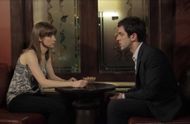For a show brimming with iconic characters and outrageous quirks, The Office rarely gets enough credit for one of its most subtly brilliant evolutions—Ryan Howard. Overshadowed by the louder personalities of Michael, Dwight, and Kelly, Ryan's arc was not just unexpected, it was genre-bending. What began as a classic “temp-next-door” trope quietly mutated into a biting satire of ambition, ego, and postmodern identity crises.
Ryan's transformation didn’t happen in loud bursts or season finales. It was slow-burning, hidden under ironic facial hair and designer nonsense. And perhaps that’s what makes his arc so underrated—you had to pay attention. While other characters became heightened versions of themselves, Ryan became someone else entirely, more than once, each time reflecting something broken in the world around him.
In a show that often avoided true consequences, Ryan’s trajectory offered a rare, darkly comedic edge. His rise and fall (and fall again) weren’t just about personal failure—they were cultural commentary, served with a side of self-tanner and startup buzzwords. Let’s unpack why Ryan Howard's arc might just be The Office’s most cleverly disguised masterpiece.
From blank slate to warning sign: The Office temp who became a mirror

When Ryan first arrived at Dunder Mifflin, he was little more than a notepad with a name tag—the guy reacting to the madness, not part of it. He served as the audience’s quiet avatar in a sea of eccentrics, his raised eyebrows doing more work than some characters' entire arcs. But this very blankness was the setup for a brilliant pivot. The moment he got a taste of corporate power, Ryan didn’t just shift gears—he slammed the gas and drove off a cliff of self-delusion.
His climb to the top as a young exec—complete with black suits, a Bluetooth earpiece, and an allergic reaction to humility—was not just character development; it was a satirical gut-punch. He wasn’t just drunk on power; he was intoxicated by the idea of himself. And that narcissistic transformation didn’t just critique Ryan—it mocked an entire generation of overconfident, underqualified ladder-climbers.
Reborn in irony: The hipster phoenix who forgot how to fly

Post-scandal, Ryan didn’t return to his original self. He couldn’t. That version of him was gone, scorched by corporate flames and community service. Instead, we got Hipster Ryan—a man whose only currency was irony. He wore suspenders for no reason, name-dropped obscure musicians, and treated his job at Dunder Mifflin like a temporary art installation.
But beneath the Instagram-filtered persona was a hollow man. Ryan had no real beliefs, no purpose, and no plan. He floated through the office like a walking parody of post-millennial malaise—all aesthetic, no substance. And still, nobody really called it out. His descent into meaninglessness was disguised in comedy, but it was quietly tragic. He had been the bright young thing. Now he was just… a vibe.
Ryan Howard never got a redemption arc. He never made amends or found peace. But maybe that’s the point. In a show about people stuck in the loop of their own making, Ryan’s transformation stood out because it dared to show us someone who changed completely—and still ended up nowhere. And that, in all its messy brilliance, might just be The Office’s sharpest commentary of all.
